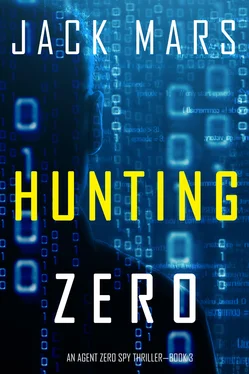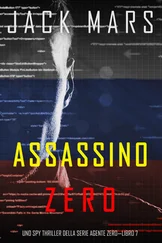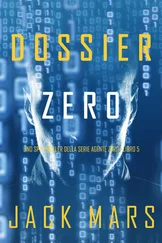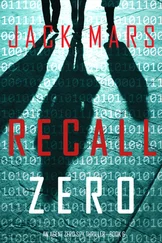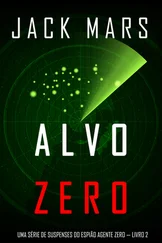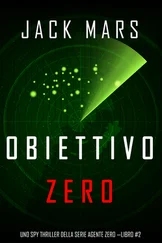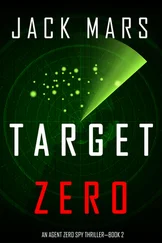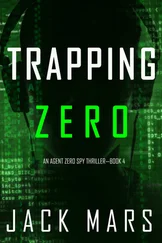I’m going to find them. I’m going to get them back. And I am going to kill Rais.
Reid took a deep breath, in through his nose and out through his mouth. “So what do we know so far?”
Watson shook his head. “Not much. We just found out right after you did, when you called the cops. But the agency is on it. We should have a lead shortly.”
“Who’s on it? Anyone I know?”
“Director Mullen gave it to Spec Ops, so Riker is taking lead…”
Reid found himself scoffing aloud again. Less than forty-eight hours earlier, a memory had returned to Reid, one from his former life as Agent Kent Steele. It was still foggy and fragmented, but it was about a conspiracy, some sort of government cover-up. A pending war. Two years ago, he had known about it—had at least known some part of it—and had been working to build a case. Regardless of how little he knew, he was certain that at least a few members of the CIA were involved.
At the top of his list was newly appointed Deputy Director Ashleigh Riker, head of Special Operations Group. And his lack of trust in her notwithstanding, he definitely didn’t expect she would put her best foot forward in finding his children.
“She assigned a new guy, young, but capable,” Watson continued. “Name’s Strickland. He’s a former Army Ranger, excellent tracker. If anyone could find who did this, it’d be him. Other than you, that is.”
“I know who did this, John.” Reid shook his head bitterly. He immediately thought of Maria; she was a fellow agent, a friend, maybe more—and definitively one of the only people Reid could trust. Last he’d heard, Maria Johansson was on an op tracking Rais into Russia. “I need to contact Johansson. She should know what’s happened.” He knew that until he could prove it was Rais, the CIA wouldn’t pull her back.
“You won’t be able to—not while she’s in the field,” Watson replied. “But I can try to get word to her another way. I’ll have her call you when she’s able to find a secure line.”
Reid nodded. He didn’t like not being able to contact Maria, but he had little choice. Personal phones were never carried on ops, and the CIA would likely be monitoring her activity.
“Are you going to tell me where we’re going?” Reid asked. He was getting anxious.
“To someone who can help. Here.” He tossed Reid a small silver flip phone—a burner, one that the CIA couldn’t trace unless they knew about it and had the number. “There are a few numbers programmed in there. One’s a secure line to me. Another’s to Mitch.”
Reid blinked. He didn’t know a Mitch. “Who the hell is Mitch?”
Instead of answering, Watson pulled the SUV off the road and into the drive of an auto body shop called the Third Street Garage. He eased the vehicle right into an open garage bay and parked. As soon as he cut the ignition, the garage door rumbled slowly down behind them.
They both climbed out of the car as Reid’s eyes adjusted to the relative darkness. Then the lights flickered on, bright fluorescent bulbs that made dots swim in his vision.
Beside the SUV, in the second garage bay, was a black car, a late eighties model Trans Am. It wasn’t much younger than he was, but the paint job looked glossy and new.
Also in the garage bay with them was a man. He wore dark blue coveralls that barely concealed spattered grease stains. His features were obscured by a tangled mass of brown beard and a red baseball cap pulled low over his forehead, the brim of it discolored with dried sweat. The mechanic slowly wiped his hands on a filthy, oil-stained rag, staring at Reid.
“This is Mitch,” Watson told him. “Mitch is a friend.” He tossed a ring of keys to Reid and gestured to the Trans Am. “It’s an older model, so there’s no GPS. It’s reliable. Mitch has been fixing it up for the last few years. So try not to destroy it.”
“Thanks.” He had been hoping for something more inconspicuous, but he would take what he could get. “What is this place?”
“This? This is a garage, Kent. They fix cars here.”
Reid rolled his eyes. “You know what I mean.”
“The agency’s already trying to get eyes and ears on you,” Watson explained. “Any way they can track you, they will. Sometimes in our line of work you need… friends on the outside, so to speak.” He gestured again toward the burly mechanic. “Mitch is a CIA asset, someone I recruited from my days in the National Resources Division. He’s an expert at, uh, ‘vehicle procurement.’ If you need to get somewhere, you call him.”
Reid nodded. He didn’t know that Watson had been in asset collection prior to being a field agent—though, to be fair, he wasn’t even sure that John Watson was his real name.
“Come on, I got some things for you.” Watson popped the trunk and unzipped a black canvas duffel bag.
Reid took a step back, impressed; inside the bag was an array of supplies, including recording devices, a GPS tracking unit, a frequency scanner, and two pistols—a Glock 22, and his backup of choice, the Ruger LC9.
He shook his head in disbelief. “How did you get all this?”
Watson shrugged one shoulder. “Had a bit of help from a mutual friend.”
Reid didn’t have to ask. Bixby . The eccentric CIA engineer who spent most of his waking hours in a subterranean research and development lab beneath Langley.
“You and him go way back, even if you don’t remember it all,” Watson said. “Although he made sure to mention that you still owe him some tests.”
Reid nodded. Bixby was one of the co-inventors of the experimental memory suppressor that had been installed in his head, and the engineer had asked if he could run a few tests on Reid’s head.
He can open my skull if it means getting my girls back. He felt another overwhelming, powerful wave of emotion crash over him, knowing that there were people willing to break the rules, to put themselves in harm’s way to help him—people he could barely remember even having a relationship with. He blinked back the threat of tears that stung his eyes.
“Thank you, John. Really.”
“Don’t thank me yet. We’ve barely begun.” Watson’s phone rang in his pocket. “That’ll be Cartwright. Give me a minute.” He retreated to a corner to take the call, his voice low.
Reid zipped the bag closed and slammed the trunk shut. As he did, the mechanic grunted, making a sound somewhere between clearing his throat and muttering something.
“Did… did you say something?” Reid asked.
“Said sorry. ’Bout your kids.” Mitch’s expression was well hidden behind his grizzled beard and baseball cap, but his voice sounded genuine.
“You know about… them?”
The man nodded. “Already on the news. Their photos, a hotline to call with tips or sightings.”
Reid bit his lip. He hadn’t thought about that, the publicity—and the invariable connection to him. He immediately thought of their Aunt Linda, who lived up in New York. These sorts of things had a way of spreading quickly, and if she heard about it she would be fraught with concern, calling and calling Reid’s phone for information and getting none.
“Got something,” Watson said suddenly. “Thompson’s truck was found at a rest stop seventy miles south of here on I-95. A woman was found dead at the scene. Her throat was cut, car gone, ID taken.”
“So we don’t know who she was?” Reid asked.
“Not yet. But we’re on it. I’ve got a tech on the inside scanning police airwaves and keeping an eye via satellite. As soon as something’s reported, you’ll know about it.”
Reid grunted. Without an ID they wouldn’t be able to find the vehicle. Even though it wasn’t much of a lead, it was still something to go on, and he was anxious to be on the trail. He had the door to the Trans Am open as he asked, “What exit?”
Читать дальше
